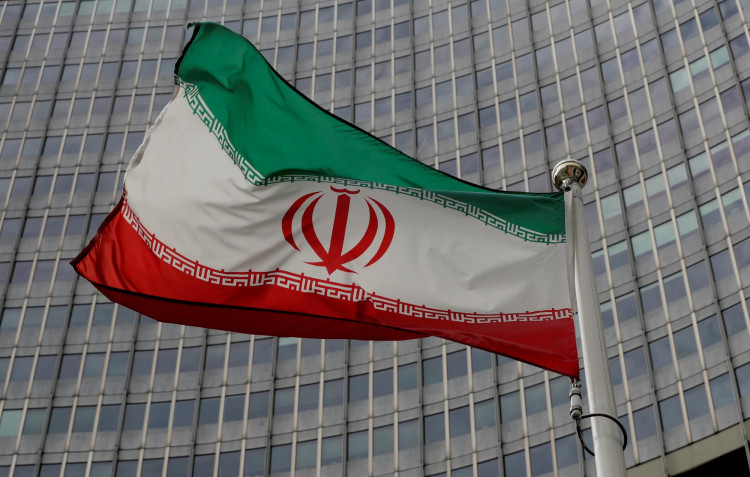On December 25, local time, an Israeli airstrike on the outskirts of Damascus, Syria, resulted in the death of Sayyid Razi Musavi, a senior Iranian military advisor in Syria. Musavi, a brigadier-general and former comrade of Qasem Soleimani, the late commander of Iran's Quds Force, was one of Iran's most experienced military advisors in Syria, responsible for coordinating the military alliance between Syria and Iran.
Iranian President Ebrahim Raisi warned that Israel would "pay the price" for this action, and the Islamic Revolutionary Guard Corps referred to Israel as "usurpers" and a "barbaric Zionist regime" during a national television broadcast announcing Musavi's death. The Israeli military has not commented on the incident.
Historically, Iran and Israel were not always adversaries, sharing a "honeymoon period" from 1925 to 1979 when the then Pahlavi-ruled Imperial Iran had good relations with Israel, collaborating in oil trade. However, after the Iranian Empire was overthrown and Ayatollah Khomeini established the Islamic Republic of Iran, relations soured. Khomeini viewed Western oppression of Palestinians as a potential threat to other Arab nations and advocated for resistance against Western powers and their allies.
Since then, Iran and Israel have severed all ties, primarily engaging in proxy conflicts. Iran's proxies include Hezbollah in Lebanon, the Popular Mobilization Forces in Iraq, Hamas, Islamic Jihad, and the Houthis in Yemen, forming a Shiite resistance axis centered around Iran. Israel, besides supporting its proxy, the People's Mujahedin of Iran, has repeatedly attacked or assassinated significant figures related to the Iranian military.
Iran considers Israel the primary source of tension in the Middle East and opposes Arab nations' peace talks with Israel. Almost all conflicts in the region are somehow linked to the animosity between Israel and Iran.
The Syrian Civil War became a primary battleground for the proxy conflict between Iran and Israel. The war began in 2011 with the Syrian government forces clashing with the opposition, primarily the Free Syrian Army, supported by Israel and the U.S. The Syrian government received direct support from Shiite militias and Hezbollah, backed by Iran. Iran also sent hundreds of military advisors to help train and organize thousands of Shiite militiamen from Iraq, Afghanistan, and Pakistan.
Since the escalation of the Israel-Palestine conflict, Hezbollah has been launching rockets into Israeli territory to support Hamas. Continuous clashes have occurred along Israel's northern border. Last weekend, Hezbollah attacked Israeli rocket launch sites, and the Israeli Defense Forces struck back at numerous Hezbollah targets.
While the Israeli Defense Forces did not explicitly state their intention to kill the Iranian military advisors, they mentioned the airstrikes in Syrian territory aimed to prevent Iran from supplying weapons to the Syrian government forces and Hezbollah.
In late March this year, two Iranian military advisors were killed in an Israeli airstrike. Iran's Foreign Ministry spokesperson, Saeed Khatibzadeh, condemned the act as a violation of international law and stated that Iran reserves the right to respond at an appropriate time and place.
On October 7, a Hamas raid caught Israel off guard. While U.S. media like "The Washington Post" suggested Iranian officials helped plan the attack, U.S. and Israeli intelligence agencies have stated there's no evidence of Iran's involvement. Khaled Elgindy, a senior senior fellow at the DC-based Middle East Institute, noted that Iran has provided substantial financial, material, and political support to Hamas, but the extent and nature of support for this specific operation remain unconfirmed.
Israel has historically combated Hamas in Gaza through blockades and sanctions due to the complex terrain and unpredictable nature of the area. After the conflict escalated, Israel launched massive airstrikes and then ground operations, seemingly determined to eradicate Hamas.
The Israeli government aims not only to weaken Iran's proxy forces by striking Hamas but also to further restrict the living space of Palestinians. In an article published on December 25, Israeli Prime Minister Netanyahu outlined three prerequisites for rebuilding Gaza and achieving broad peace in the Middle East: the destruction of Hamas, the demilitarization of Gaza, and the deradicalization of Palestinian society.
Additionally, as retaliation for U.S. support of Israel, Iran-backed Iraqi militias have launched over 100 attacks on U.S. bases in Iraq and Syria. Although Iran denies the Houthis are its proxies, Western nations believe Iran provides substantial support to the Houthis through Hezbollah. In the past month, the Houthis have launched over 100 attacks on about 12 commercial ships passing through the Red Sea, involving 35 different countries, leading several shipping giants to suspend their Red Sea routes.
In May this year, regional reconciliation seemed to accelerate when Saudi Arabia and Iran, two major Middle Eastern rivals, announced the restoration of diplomatic relations. However, Israel and the U.S. have expressed dissatisfaction with the current wave of reconciliation, acting as disruptors to this trend.
Correction: Khaled Elgindy is senior fellow at the DC-based Middle East Institute, not the Washington Institute for Near East Policy.




